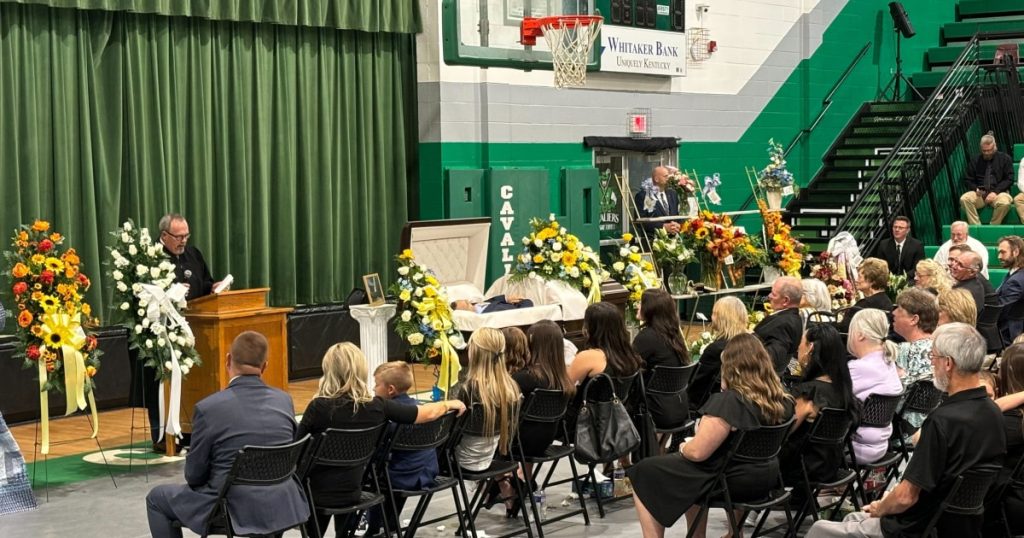District Judge Kevin R. Mullins of Kentucky was remembered and mourned by hundreds of people at his funeral following his tragic murder by Letcher County Sheriff Shawn M. Stines. Mullins was hailed as a pioneer in the fight against opioid addiction and mental health issues, advocating for treatment over incarceration for low-level drug offenders. The killing occurred in Mullins’ chambers following an argument, and authorities are investigating the motive behind the shooting. The heavy law enforcement presence at the funeral highlighted the shock and grief felt by the community over Mullins’ tragic death.
During the funeral service, several judges from across the state spoke highly of Mullins, praising his dedication to helping people struggling with opioid addiction and mental health issues within the court system. State Supreme Court Judge Debra Lambert highlighted Mullins’ passion for saving and improving lives, emphasizing his role as a leader in addressing these critical issues. Family members did not speak at the funeral, but Mullins’ mother expressed gratitude for the outpouring of community support and the continuation of her son’s mission to bring about change in the opioid epidemic.
District Judge J. Foster Cotthoff described Mullins as a tireless worker and innovator in opioid treatment, recognizing his compassionate approach to offenders and his efforts to link them to treatment services early on. Mullins’ protocol focusing on rehabilitation rather than jail time gained statewide recognition, making him a key figure in reshaping Kentucky’s approach to behavioral health issues. Matt Brown, president of Addiction Recovery Care, commended Mullins for his innovative practices, which involved sending low-level drug offenders to rehab instead of prison.
Born in Pikeville, Kentucky in 1970, Mullins graduated from the University of Kentucky with a degree in political science and later obtained a law degree from the University of Louisville. He began his judicial career in 2009, serving as a District Court judge for 14 years. Despite his professional accomplishments, Mullins was remembered by his friend and colleague, District Judge James Craft, as a down-to-earth person who enjoyed simple pleasures like trying a cheeseburger instead of dining at fancy restaurants. Mullins is survived by his wife, Kimberly, his daughters Mya and Ava, his sister, and several nieces and nephews.
Mullins’ untimely death has left a void in the Kentucky judicial system, as he was an advocate for compassion and rehabilitation in addressing the opioid epidemic. His legacy lives on through the statewide recognition of his innovative protocols and his compassionate approach to helping individuals struggling with addiction. The outpouring of support from the community at his funeral reflects the impact that Mullins had on countless lives and his commitment to bringing about positive change in the legal system. As the investigation into his murder continues, Mullins’ memory will be honored by those who knew and respected him.












